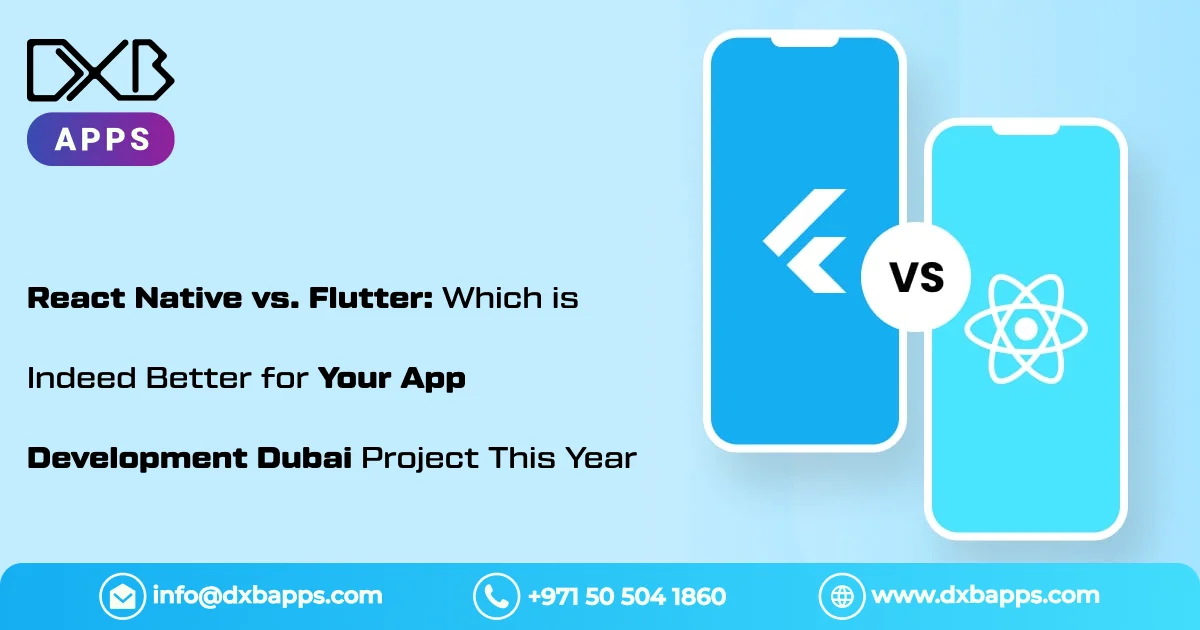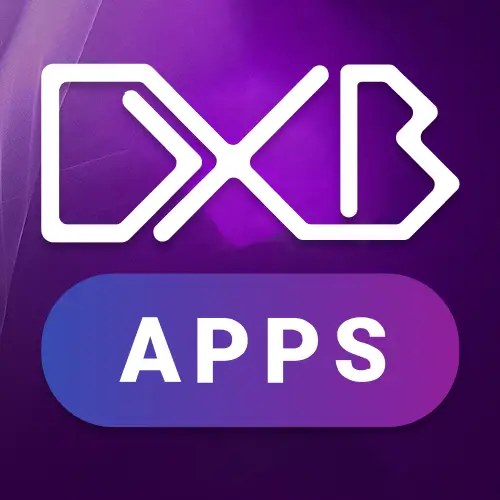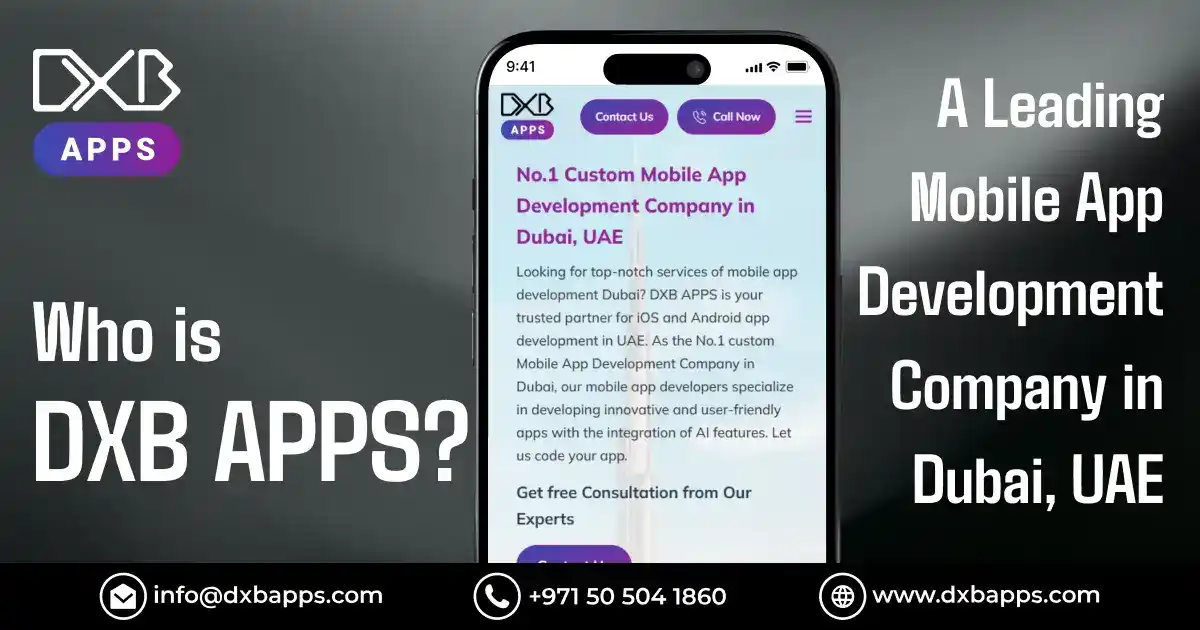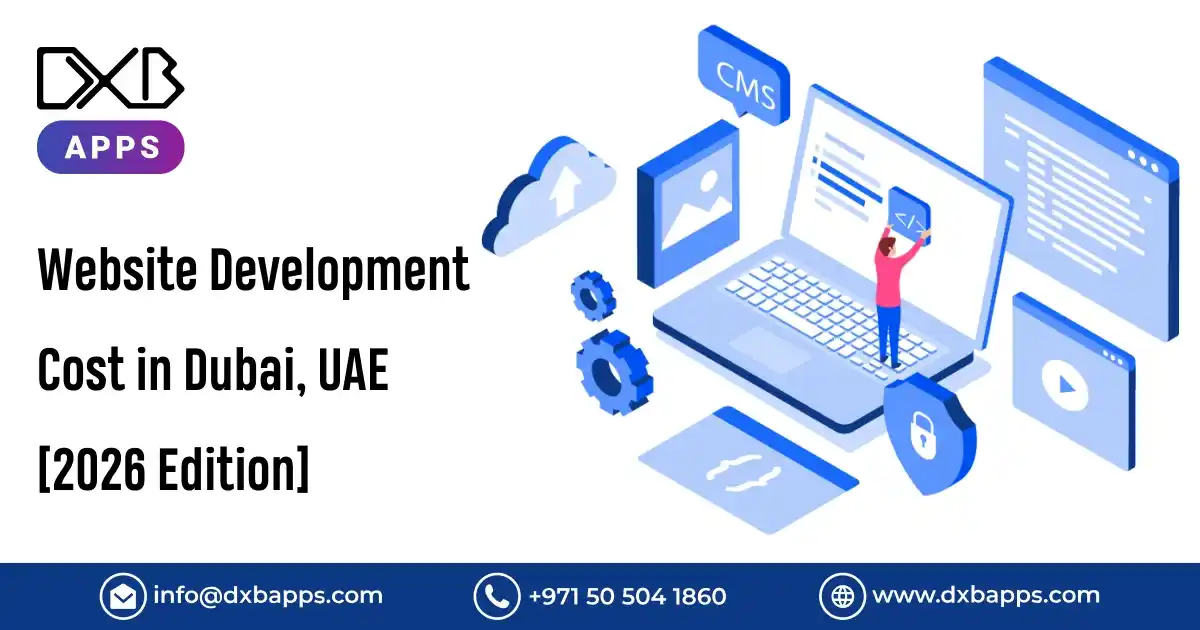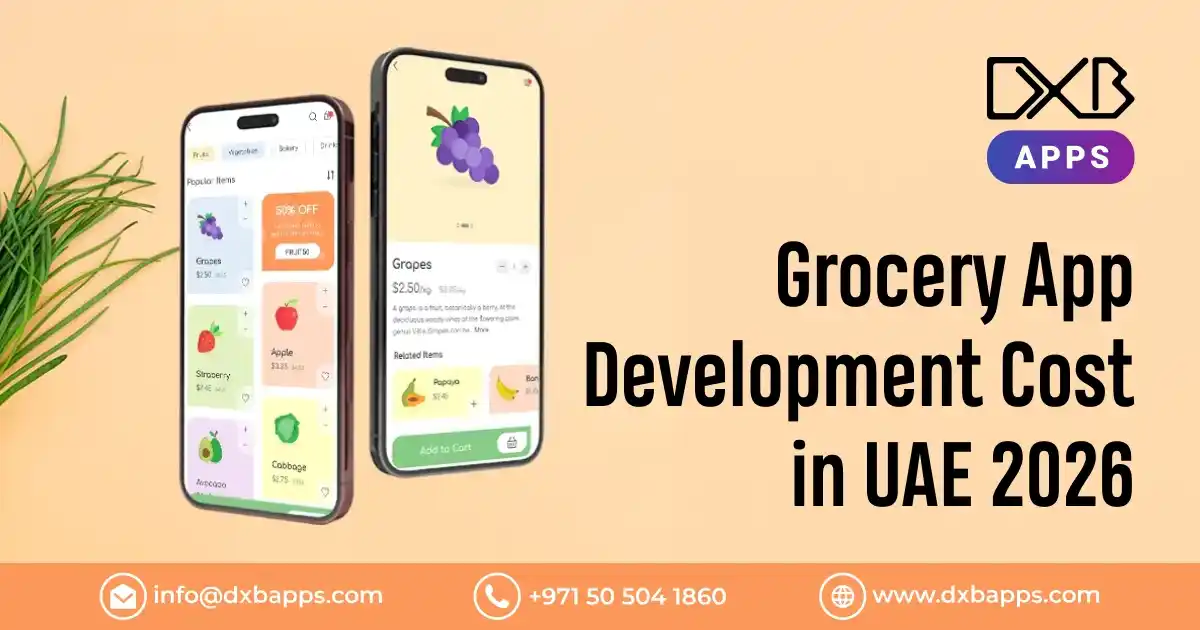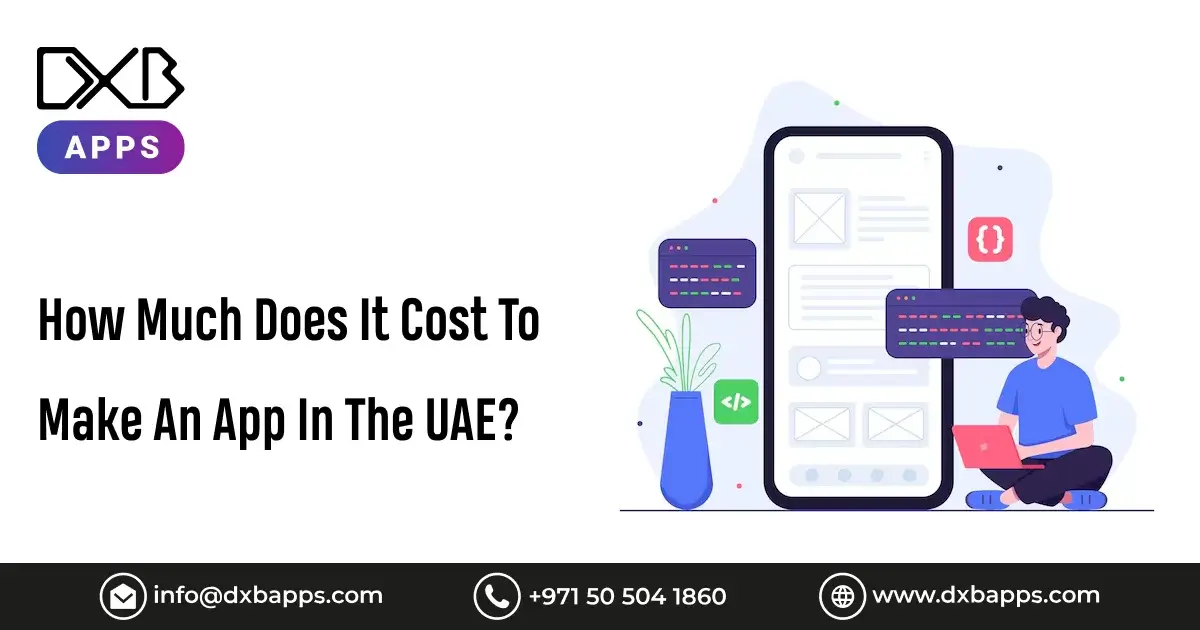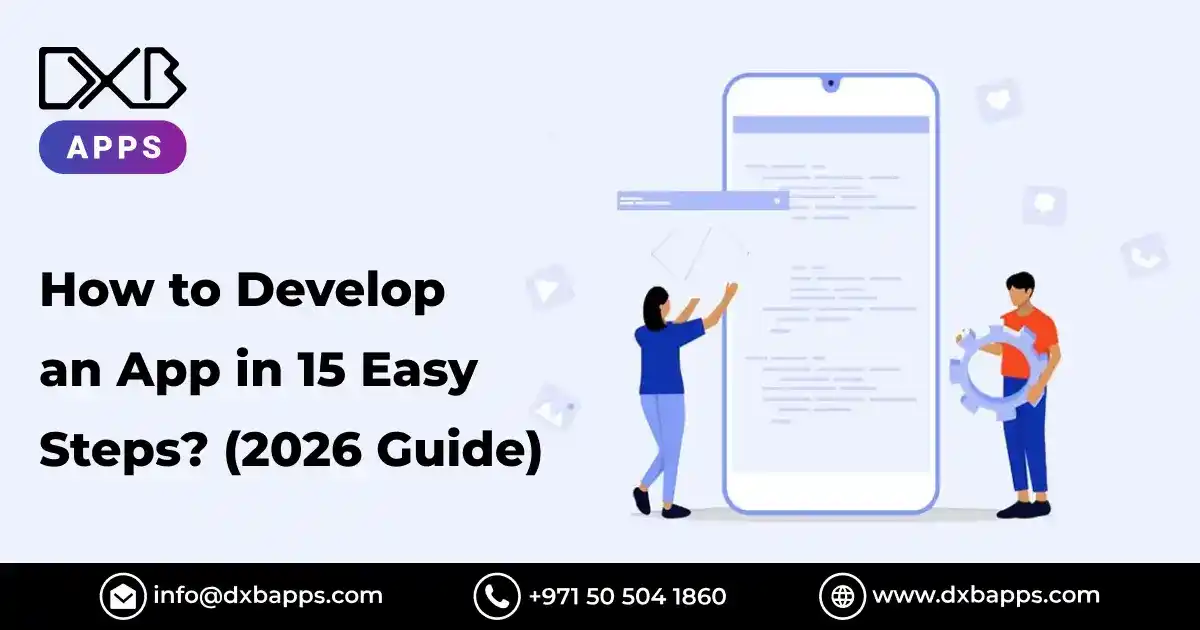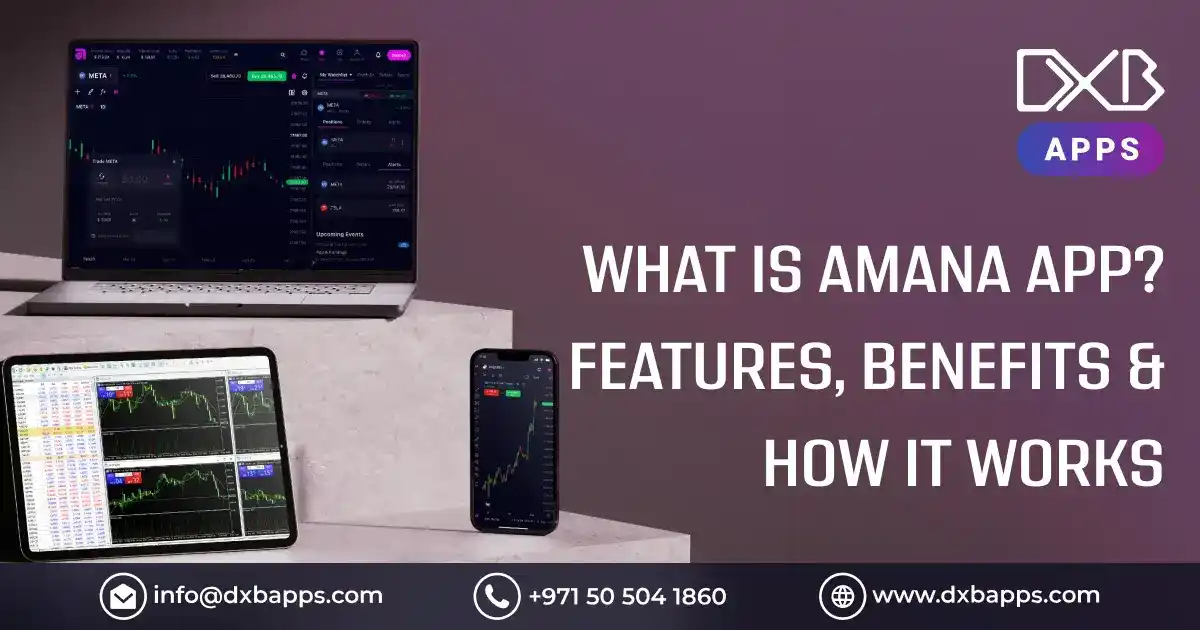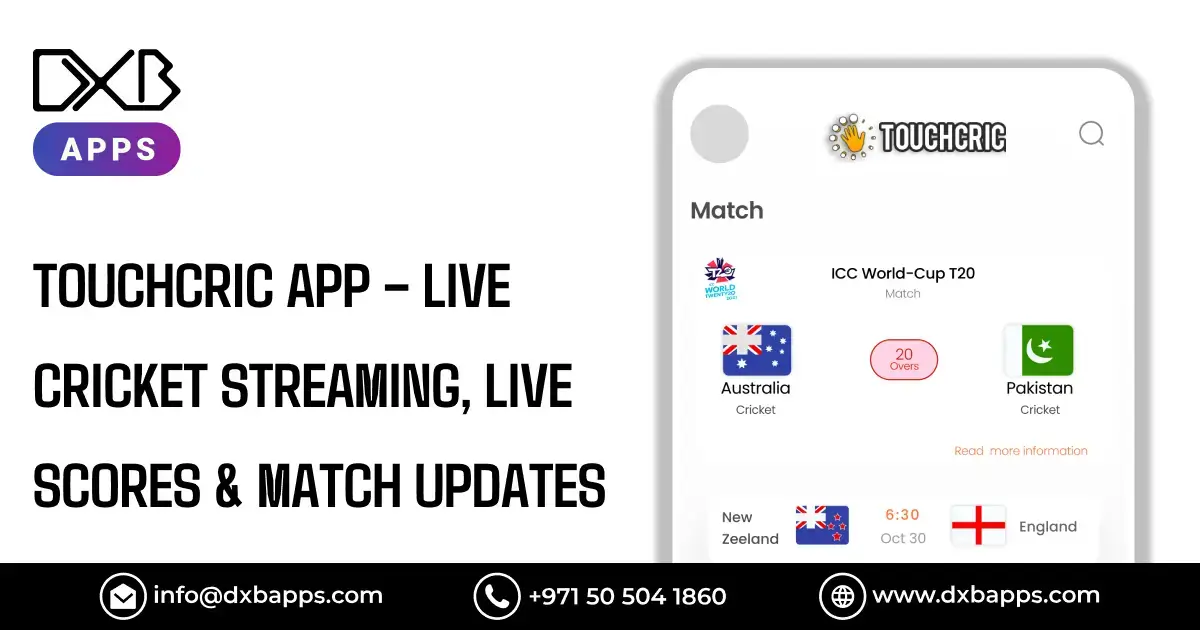The market for mobile apps development dubai is expanding quickly. However, developing apps for iOS and Android requires two distinct teams with disparate skill sets. Cross-platform mobile application results, such as Google's Flutter and Facebook's React Native, are the answer to that.
So which is preferable, React Native or Flutter?
We'll compare Flutter and React Native based on their features and backgrounds by app development companies in Dubai today as we walk you through some of the most well-known apps created with each platform. By the time you finish reading this article, you'll have a firm grasp of the advantages and disadvantages of Flutter vs. React Native.
Understand What Flutter Is?
Utilizing the Dart programming language, Flutter is an open-source, cross-platform reactive framework for mobile app development companies UAE. Google established both Dart and Flutter, and the internet behemoth uses them as the foundation for some of its most popular apps. May 2017 saw the release of the first alpha version. But in May 2021, Google will release new versions every few months.
Let's examine some of Google Flutter's features: installation, development, reactive programming, and more.
Unleashing Boundless Possibilities: Navigating Your App Development Journey in Dubai with React Native and Flutter.
Reactive Programming With Flutter
Imagine you wish to request a server and then take a specific action based on the answer you receive. You risk making the infamous billion-dollar error—a null reference—if you act before receiving a response, that is, before you have an object. If you are familiar with Java and Android, you are aware that one of the primary goals of Kotlin was to do away with the null reference.
When data arrives asynchronously, requiring numerous clicks and requests from the user, multiple program components must react to the incoming data. Put otherwise, a world devoid of reactive programming would be anarchy.
Flutter Development And Installation
Widgets are the primary building blocks of Flutter applications. Widgets in React Native are similar to components. Many ready-to-use widgets are included with Flutter, most of which apply material design principles. Like class and functional elements in React, there are two sorts of widgets: stateless and stateful. Sadly, Flutter's widgets are not platform-specific, so you must manually adjust each platform.
With Flutter, getting started is relatively easy. To get started, download and unzip the Flutter package, then set up an environment variable to point to a folder inside the unzipped folder. If you wish to use an emulator instead of your phone, you may need to download Android Studio and set it up.
With Flutter's support for the Hot Reload feature, you may expedite mobile application development in UAE by rerunning your application with the modifications you make during development. Android Studio, IntelliJ Idea, and also Visual Studio Code officially support Flutter.
The Flutter Ui Elements
In comparison to React Native, Flutter offers a more robust component collection. To assist you in creating unique apps, the framework includes many UI rendering components, navigation, libraries, API access, and much more. The numerous widgets in the application also facilitate UI creation for iOS and Android smartphones.
Flutter's Pros and Cons
Pros:
- Rapid development with the same source code.
- "Hot Reload" simplifies experimentation and bug fixing.
- Layered architecture increases control and customizability.
- Excellent record-keeping
- Error-free separate user interface
- Designs that are easy to use
Cons:
- Young framework with a few typical problems that are difficult to fix.
- Apps require a lot of space and take longer to download.
- Programming language (Dart) and framework that is updated continuously
- Although impressive, libraries and assistance are not as productive as native iOS app development in Dubai.
When To Apply Flutter
- Tiny spending plans
- brief period of development
- UI-focused applications
- Cycle (Hot Reload)
Explore What React Native Is?
React Native from Facebook is arguably the most well-known tool for cross-platform mobile programming. React Native was first presented to the community in 2015 after beginning as a 2013 internal hackathon project at Facebook. React Native is indeed a JavaScript framework that allows you surely to ship iOS and Android apps with a single code base. It was created using the React library.
"A well-informed choice between React Native and Flutter can significantly indeed impact the success of your app in the competitive Dubai market."
Development And Installation
Components are used in React Native, although the react-native library's collection of mobile-specific components is used in place of web components like Div and H1. A virtual DOM is another tool that React Native employs to interact with native UI components.
Though it doesn't have as many widgets as Flutter, React Native is comprehensive and has flexible elements.
Installing the create-react-native-app set using npm and using it indeed to create a new React Native application is the first step in getting started with React Native. The Expo integration feature of React Native is helpful for app developers in UAE. Expo indeed enables you to run your code on a mobile device without the need for configuration. Instead, all you have to do is scan a QR code that indeed shows on the console.
UI Elements
The component set of Flutter is richer than that of React Native. On the other hand, it just offers UI rendering and depends on external libraries to access native modules. React Native is perceived by certain users as excessively dependent on these outside entities.
React Native is perceived by certain users as excessively dependent on these outside entities.
Pros & Cons Of React Native
Pro:
- Large base packages are a result of the widely used JavaScript language.
- One codebase allows developers of mobile app development company Dubai to create apps for several devices at once rather than one at a time.
- Developer autonomy as it promotes cost-saving and code reuse
- Comparatively mature
- A large and vibrant community
- React developers find it easy to learn
Cons:
- Native developers are still required.
- Inadequate in comparison to Flutter
- Troubleshooting problems
- fewer parts removed from the packaging
- Many unopened packages and libraries
- brittle user interface
- Apps surpass native ones in size.
When to Apply React Native?
- High costs and intricate projects
- Intricate cross-platform applications
- Reusing code in desktop and mobile applications
- Developers with less experience due to a lot of documentation support
“Selecting the appropriate tool for a masterpiece is similar to choose between React Native and Flutter. Each offers special advantages, and the choice ultimately comes down to the particular specifications of your Dubai app development project."
Conclusion
As we can see, both sides have advantages and disadvantages in the React Native vs. Flutter argument, but the goal is to bridge the gap indeed between the two platforms (iOS and Android).
Several industry professionals see Flutter as the mobile app development language of the future. However, React Native is still in charge of some of the most amazing apps available today, such as Facebook and Instagram. Ultimately, each platform has a different function, so think about what you need
before choosing one.
You can also contact DXB APPS, a leading app development company dubai for your project. DXB APPS also stands out as the leading web development company Dubai, offering clients a wide array of high-quality services. The expertise as a best web development agency Dubai includes personalized customization and branding, seamless scalability options, efficient inventory management, robust B2B functionality, streamlined order management, and much more.
FAQs
Is React Native Worse Than Flutter?
Each has advantages and disadvantages. If you appreciate a rich component set and want to create small applications on a moderate budget, Flutter might be a better fit for you.
Is React Native Slower Than Flutter?
Flutter does indeed speed up React Native. React Native is a slower process because it uses JavaScript to bridge native components.
Is There Still Hope for Flutter?
Experts predict flutter to be a major force in mobile app development in the future due to its constantly expanding feature set and growing market.

